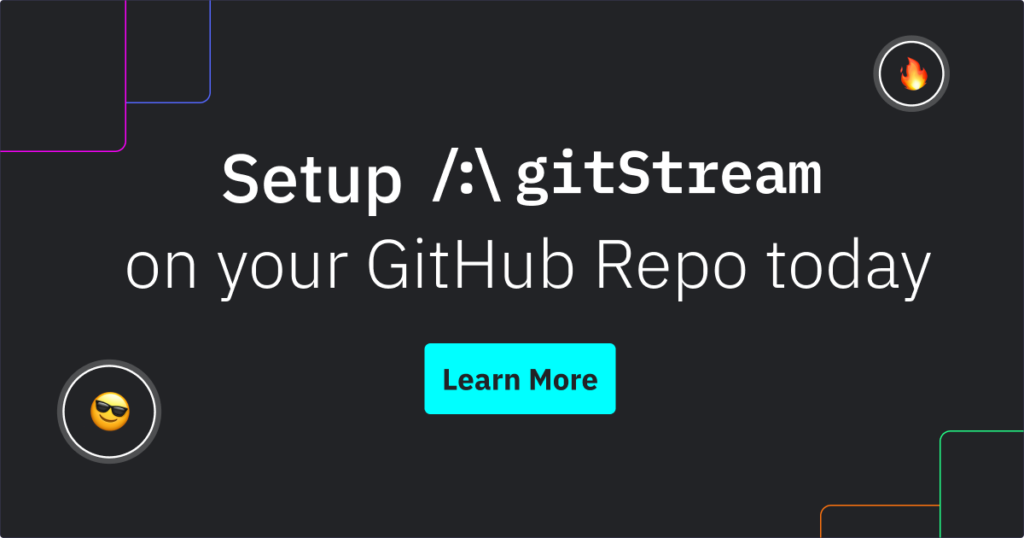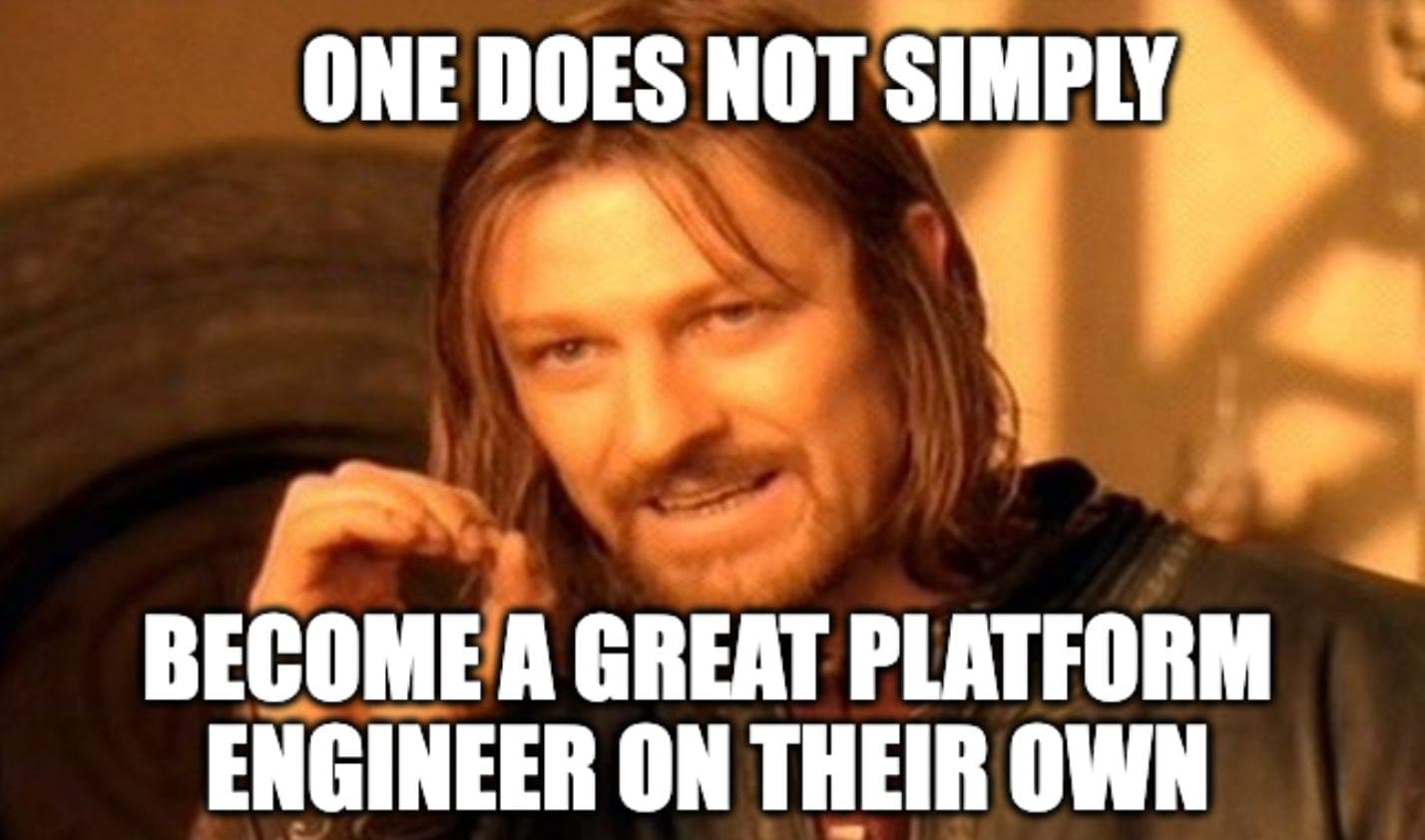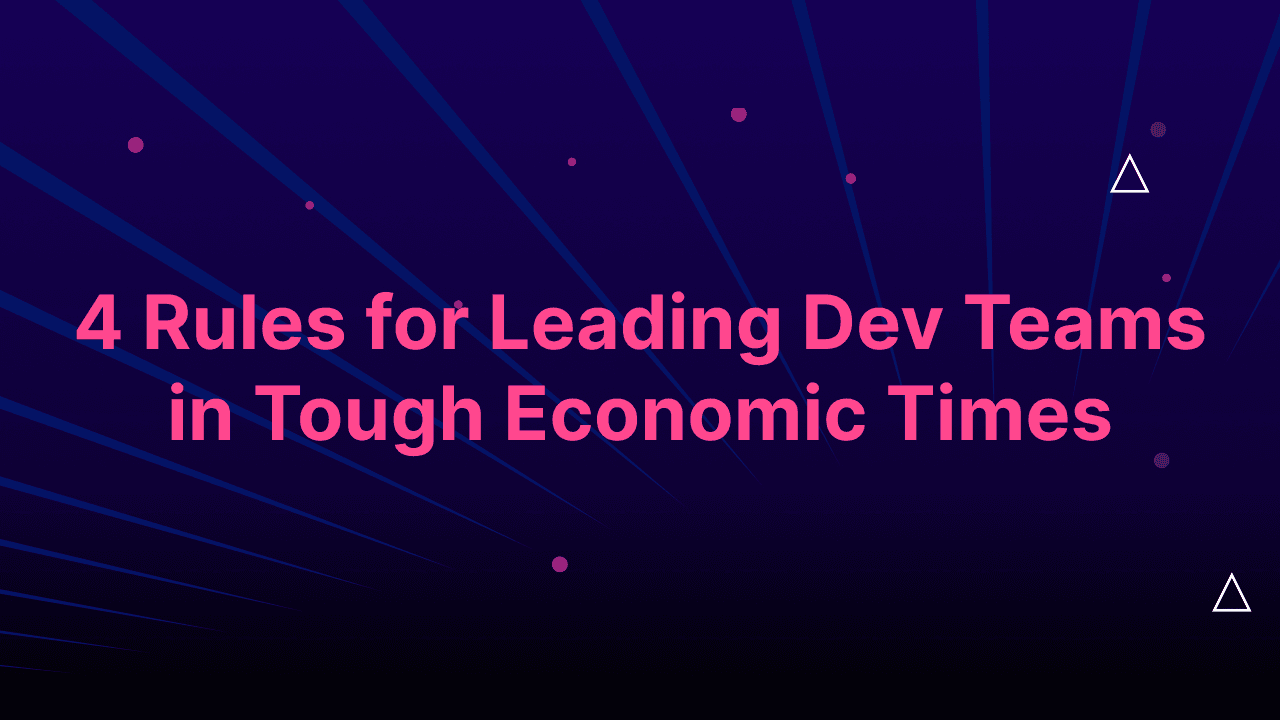“The future is still so much bigger than the past.”
- Tim Berners-Lee, Inventor of the World Wide Web
For platform engineers, the future is bright. Commonly thought of as the next stage beyond devops, platform engineers are one of the most in-demand and well-regarded positions in tech.While there is a huge upside to being on the cutting edge of an industry, there is one major, potential drawback: A lack of tried and true wisdom you can apply to the role.
With the platform-engineering playbook still being written every day, I wanted to chip in with the best insights on being a successful leader and platform engineer I’ve heard from the best minds in our industry.
The Wisdom: Success is when engineers don’t notice your work
The expert: Kathryn Koehler, Director, Developer Productivity Engineering @ Netflix
There’s no better measure of success for platform engineers than to have the developers they support free from being blocked, stuck or disrupted. This is especially true when you’re building a fast-moving engineering juggernaut at Netflix, like Kathryn Koehler.
According to Kathryn, when your work goes unnoticed, it signifies a seamless, smooth development experience. This allows developers to concentrate on building applications and features, accelerating the development cycle and delivering high-quality software.
Ultimately, the goal of platform engineers is to create a stable and reliable platform that operates silently, enabling developers to excel in their work without unnecessary disruptions.
The Wisdom: Eliminate the most common sources of toil, like testing
The expert: Kaspar von Grünberg, Humanitec's founder and CEO
Eliminating the most common sources of toil, such as testing, is crucial for platform engineers.
This wisdom comes from one of the top leaders in platform engineering, Humanitec's founder and CEO Kaspar von Grünberg. Kasper rightly points out that by automating and streamlining testing processes, engineers free up valuable time and resources to focus on more impactful tasks.
Removing manual, repetitive testing work not only increases productivity but also reduces the risk of human error while making developers happier they don’t have to wase their time. In the end, it allows engineers to allocate their expertise and creativity towards innovation, problem-solving, and improving the overall efficiency of the platform.
The Wisdom: Focus on making your team complete with diverse skill sets
The expert: Charity Majors, CTO of Honeycomb.io
Charity Majors’ charisma is just one reason she’s a great leader. The other? She knows how to build complete, diverse and complementary teams.
Firstly, diverse skill sets bring a variety of perspectives, experiences, and expertise to the table, enhancing problem-solving and innovation capabilities.
Different backgrounds and skill sets enable the team to approach challenges from multiple angles, leading to more comprehensive solutions.
Additionally, diverse teams foster a culture of learning, collaboration, and mutual growth, as team members can learn from each other's unique skills and knowledge.
A diverse team also ensures resilience, as it can adapt to changing requirements and tackle a wide range of tasks efficiently.
The Wisdom: Keep the whole engineering org regularly updated on what the platform team is thinking about
The expert: Ambassador Labs' Katie Wilde
Keeping the entire engineering organization regularly updated on the platform team's thoughts is essential - it fosters transparency, alignment, and collaboration across teams, ensuring that everyone is on the same page regarding platform developments and strategies.
It can be as simple as what Katie Wilde suggests: Making a blog or short video about what she’s thinking about. She sends it off to her team and those small updates let the entire org know what a crucial member of their department is thinking about.
These regular updates promote a shared understanding of the platform's direction, goals, and challenges, encouraging input and feedback from different perspectives.
It enables other engineering teams to anticipate changes, plan their work accordingly, and leverage the platform effectively.
The Wisdom: Automate pull requests & code reviews
The experts: Dan Lines and Ori Keren, Co-founders of LinearB
There’s probably no easier win for platform engineers than helping fix the No. 1 undiagnosed problem in software development: Massive bottlenecks in pull requests and code reviews.
In helping engineering orgs get visibility into developer workflows with LinearB, Dan Lines and Ori Keren discovered that the majority of cycle time was being spent in pull request and code review. They found that:
- The average cycle time for a piece of work was 7 days
- Half of all PRs were idle for 50% of their lifespan
- Cycle time doubled when pull requests went from 100 lines of code to 200 lines of code
The solution for this came in the form of gitStream, a tool that solved a host of issues keeping pull requests from being effectively picked up, including auto-assigning the best reviewer, adding estimated time to review, limiting PR size, segmenting PRs based on risk and more.
The Wisdom: Have regular meetings with devs on what their problems are
The expert: Kelly Vaughn, Director of Engineering @ Spot AI
Kelly Vaughn’s unique background makes her wisdom even more relevant. As a trained-therapist-turned-engineer, Kelly has a simple-but-impactful way to become the platform engineer your company needs: Find out the problems you should be solving based on unearthing the problems devs are actually having.
These conversations provide an opportunity for platform engineers to understand the specific pain points faced by developers and gain insights into their needs and challenges. By actively listening to developers, platform engineers can identify areas where the platform can be improved, optimized, or customized to better support development workflows.
This direct feedback loop fosters a collaborative environment where solutions can be brainstormed, prioritized, and implemented efficiently. By addressing developers' problems proactively, platform engineers can enhance developer productivity, streamline processes, and create a platform that truly meets the needs of the entire engineering team
Proven strategies for being a great platform engineer
When an industry changes as fast as ours, advice can be obsolete by the time it gets written down. That’s why it’s important to tap into the real-time wisdom of people whose opinions you respect and careers you admire.
If you enjoyed these takeaways and would like to hear more interviews with platform engineers, founders and tech leaders, consider subscribing to the Dev Interrupted podcast. New episodes drop each week wherever you listen to podcasts.
Want to cut code-review time by up to 40%? Add estimated review time to pull requests automatically!
gitStream is the free dev tool from LinearB that eliminates the No. 1 bottleneck in your team’s workflow: pull requests and code reviews. After reviewing the work of 2,000 dev teams, LinearB’s engineers and data scientists found that pickup times and code review were lasting 4 to 5 days longer than they should be.
The good news is that they found these delays could be eliminated largely by adding estimated review time to pull requests!
Learn more about how gitStream is making coding better HERE.





